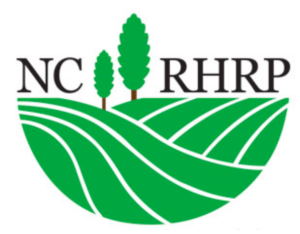- Social Factors Help Explain Worse Cardiovascular Health among Adults in Rural Vs. Urban Communities
- Reducing Barriers to Participation in Population-Based Total Cost of Care (PB-TCOC) Models and Supporting Primary and Specialty Care Transformation: Request for Input
- Secretary Kennedy Renews Public Health Emergency Declaration to Address National Opioid Crisis
- 2025 Marketplace Integrity and Affordability Proposed Rule
- Rural America Faces Growing Shortage of Eye Surgeons
- NRHA Continues Partnership to Advance Rural Oral Health
- Comments Requested on Mobile Crisis Team Services: An Implementation Toolkit Draft
- Q&A: What Are the Challenges and Opportunities of Small-Town Philanthropy?
- HRSA Administrator Carole Johnson, Joined by Co-Chair of the Congressional Black Maternal Health Caucus Congresswoman Lauren Underwood, Announces New Funding, Policy Action, and Report to Mark Landmark Year of HRSA's Enhancing Maternal Health Initiative
- Biden-Harris Administration Announces $60 Million Investment for Adding Early Morning, Night, and Weekend Hours at Community Health Centers
- Volunteer Opportunity for HUD's Office of Housing Counseling Tribe and TDHE Certification Exam
- Who Needs Dry January More: Rural or Urban Drinkers?
- Rural Families Have 'Critical' Need for More Hospice, Respite Care
- Rural Telehealth Sees More Policy Wins, but Only Short-Term
- States Help Child Care Centers Expand in Bid To Create More Slots, Lower Prices
Navigating the Application Guide for HRSA Rural Healthcare Provider Transition Project

-Apply by August 15. Five small rural hospitals and certified Rural Health Clinics will be selected to receive one year of focused, virtual technical assistance designed to strengthen their organization’s understanding of the key elements of value-based care. Project focus areas include quality, efficiency, patient experience, and safety. Details on the application process can be found in the 2024-2025 Application Interview and Process Guide. Selected applicants will be notified in September, and project activities begin in October 2024.
Using the Updated Financial Distress Index to Describe Relative Risk of Hospital Financial Distress

Researchers at the North Carolina Rural Health Research and Policy Analysis used a recent revision of the Financial Distress Index (FDI) model to describe the relative risk of experiencing financial distress for rural hospitals and selected urban hospitals. Among the findings: over 60 percent of hospitals at highest relative risk of financial distress are in seven states: Texas, Oklahoma, Tennessee, Alabama, Kansas, Mississippi, and Georgia.
Research Demonstrates Non-Urgent Use of Emergency Departments by Rural and Urban Adults
 Among findings from the Maine Rural Health Research Center: rural adults aged 18-64 are more likely than their urban counterparts to visit the emergency department in a given year; socio-demographics associated with higher rates of non-urgent ED use by rural residents include younger age, fair or poor mental and physical health, low income, public insurance coverage, and lower access to primary care.
Among findings from the Maine Rural Health Research Center: rural adults aged 18-64 are more likely than their urban counterparts to visit the emergency department in a given year; socio-demographics associated with higher rates of non-urgent ED use by rural residents include younger age, fair or poor mental and physical health, low income, public insurance coverage, and lower access to primary care.
